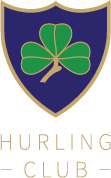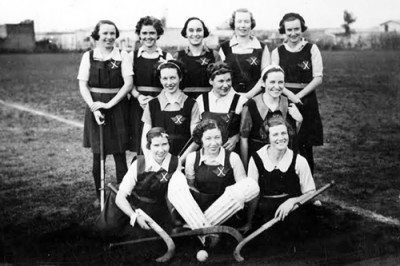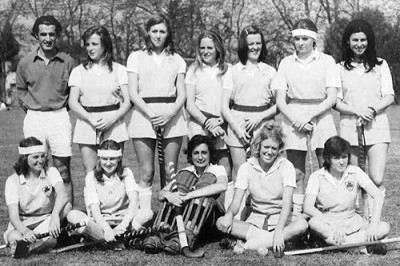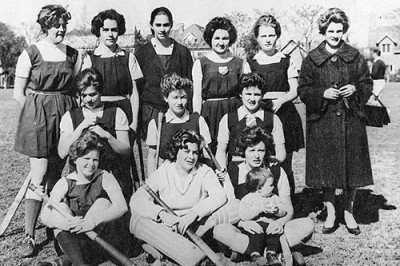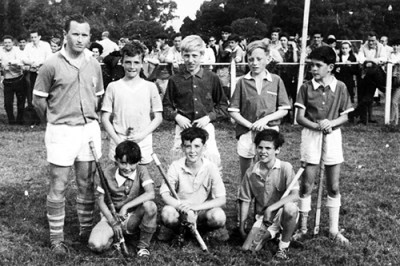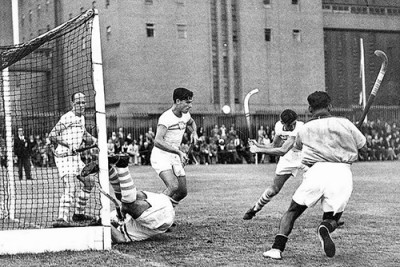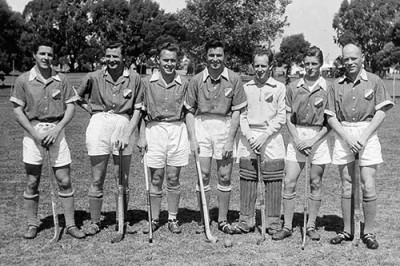HistoryExcelling in Field Hockey
Whilst the motivation of the male club members in adopting hockey is unclear, one can identify some of the influences involved. In particular, members were already familiar with the game through the women’s division ‘Golden Wings’. There was also likely to have been a feeling among members that they could excel at the game given their expertise with a hurley. They began to practice and play friendlies in the latter part of 1941, and in 1942 they joined the AAAH and began to compete in its main tournament. Another group took up rugby.
The first official male field hockey game played by Hurling Club was in May 1943 against Quilmes Athletic Club ‘B’ team. They won the first match by 2-0 and the first goal in competitive hockey was scored by Cecilio McCormack, who some years later would become president of the AAAH. The Standard newspaper reported that Hurling had committed a number of unusual offences during the match, including kicking the ball with their feet. By the end of the first season the men’s hockey team were crowned champions of the second division. In their first year in the premier division, they were unlucky in losing the top spot to Quilmes by a single goal. Following that, however, Hurling came to dominate Argentine hockey for the next seven years, winning the first division championship in 1949, 1950, 1951, 1953, 1954, 1955 and 1956.
Such was the club’s rise to prominence in the sport that three forwards and two midfielders were chosen to be part of the hockey team that competed in the 1948 Summer Olympics in London. These were Tomás Quinn, Luis Scally, Tomás Scally, Tomás Wade and Guillermo Dolan. The goalkeeper Mario Vieytes from the Club was pre-selected, but was not included in the final list. The team travelled to London by ship, together with distinguished sportsmen such as the basketball player Oscar Furlong, and Delfor Cabrera, winner of the marathon. Their training and practice sessions were held on the ship’s deck. In their first group game they lost to India 1-9 (eventual gold medal winners), won 3-2 against Spain and drew 1-1 with Austria. Overall they came second in the group, but this was insufficient to allow them to progress to the semi-finals.
– Continue reading «Hurling Club and Identity»
